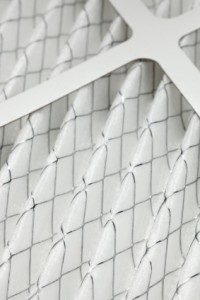 You have heard us talk a lot about the benefits of changing your filter frequently. Changing your filter out at recommended times helps your system run more efficiently and helps with the overall air quality in your home. You have probably went to the store and seen the same filter sizes at different prices. If you have been indecisive about which filter to buy, this may help you to decide.
You have heard us talk a lot about the benefits of changing your filter frequently. Changing your filter out at recommended times helps your system run more efficiently and helps with the overall air quality in your home. You have probably went to the store and seen the same filter sizes at different prices. If you have been indecisive about which filter to buy, this may help you to decide.
According to the EPA (Environmental Protective Agency), Guide to Air Cleaners in the Home article (https://www.epa.gov/indoor-air-quality-iaq/guide-air-cleaners-home) April 3, 2017:
Flat or panel air filters with a MERV of 1 to 4 are commonly used in residential furnaces and air conditioners. For the most part, such filters are used to protect the HVAC equipment from the buildup of unwanted materials on the surfaces such as fan motors and heating or cooling coils, and not for direct indoor air quality reasons. They have low efficiency on smaller airborne particles and medium efficiency on larger particles, as long as they remain airborne and pass through the filter.
Some smaller particles found within a house include:
- viruses
- bacteria
- some mold spores
- a significant fraction of cat and dog allergens
- a small portion of dust mite allergens
- Pleated or extended surface filters
- Medium efficiency filters with a MERV of 5 to 13 are reasonably efficient at removing small to large airborne particles. Filters with a MERV between 7 and 13 are likely to be nearly as effective as true HEPA filters at controlling most airborne indoor particles. Medium efficiency air filters are generally less expensive than HEPA filters, and allow quieter HVAC fan operation and higher airflow rates than HEPA filters since they have less airflow resistance.
- Higher efficiency filters with a MERV of 14 to 16, sometimes misidentified as HEPA filters, are similar in appearance to true HEPA filters, which have MERV values of 17 to 20. True HEPA filters are normally not installed in residential HVAC systems; installation of a HEPA filter in an existing HVAC system would probably require professional modification of the system. A typical residential air handling unit and the associated ductwork would not be able to accommodate such filters because of their physical dimensions and increase in airflow resistance.
- Filters with a MERV between 7 and 13 are likely to be nearly as effective as true HEPA filters.
- (https://www.epa.gov/indoor-air-quality-iaq/guide-air-cleaners-home) April 3, 2017
(HEPA is short for High Efficiency Particulate Air (filter). Simply stated, a HEPA filter gets more particulates out of the air than your standard air filter. )
Airborne particles smaller than 1 micrometer can, fall slowly, and take days to years to settle out of a quiet atmosphere. In a turbulent atmosphere, they may never settle out, and include viruses, small bacteria, metallurgical fumes, soot, oil smoke, tobacco smoke, clay, and fumes. See the list of airborne particulates online at the Engineering Tool Box.
What about the cost? Higher efficiency filters for the home usually run between $25-$35. They may help increase your overall health, especially if you deal with respiratory issues or have allergies year round. Even if you deal with allergies on a seasonal basis, you may want to switch your traditional filter out to a Higher efficiency filter for those troublesome months you typically have allergy problems. There are a whole host of products that will improve the overall air quality of your home. If you would like more information, call us or schedule an appointment for us to sit down with you and share about YORK™s line of air filtration systems. 812-280-0510
Fun Fact
-A micron is 1 millionth of a meter [link http://www.hepafilter-pro.com/Filter_Ratings.php] , or about 0.00003937 inches, which means there are 25,400 microns in an inch. This dot (.) on your computer screen is about 615 microns.
